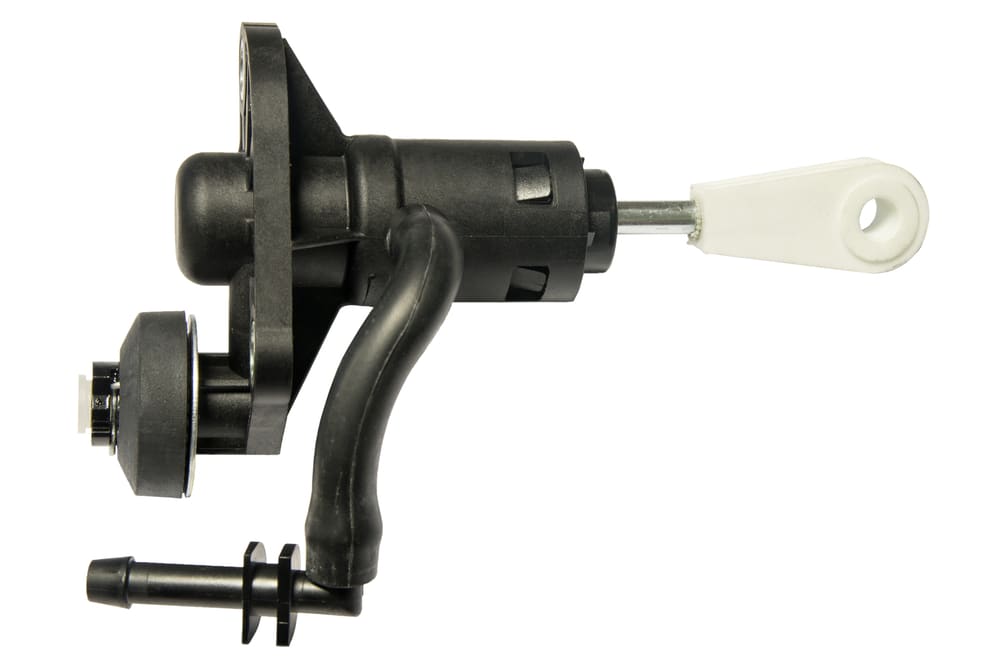

The clutch master cylinder is linked to the clutch slave cylinder through a series of hoses. Once you depress the clutch, brake fluid moves from the clutch master cylinder into the slave cylinder. This applies the necessary pressure to move the clutch. The purpose of the clutch master cylinder is to hold the brake fluid for when you press the clutch down. This way, the brake fluid is always ready so your vehicle can operate smoothly.
The clutch master cylinder has both internal and externals seals that help to keep the brake fluid in place. Over time, these seals can wear out or fail. If this happens, the clutch master cylinder will drip braking fluid, and cause the clutch not to work properly. The clutch master cylinder is used every time you press the clutch pedal, so constant use of the clutch can wear this part out faster.
If there is a seal leak in the clutch master cylinder, you will notice a soft pedal. This means the pedal has lost its resistance as you press the clutch down. Another sign of a leak in the clutch master cylinder is frequent low brake fluid. If you constantly need to fill the reservoir, you should have your clutch master cylinder looked at. Difficulty changing gears is a sign the clutch master cylinder is about to fail. If the master cylinder has completely gone out, the clutch pedal will go all the way to the floor and will not rise back up. If this happens, you will not be able to drive your vehicle and your clutch master cylinder will need to be replaced.
Since the clutch master cylinder can wear out, leak, or become damaged over time, it is important to know the symptoms to look for before it completely fails.
Signs that your clutch master cylinder needs to be replaced include:
- You are unable to change gears at all
- Brake fluid is leaking around the clutch pedal
- The clutch pedal goes all the way to the floor
- There is a loud noise when you press the clutch pedal down
- You constantly have low braking fluid
- You have difficulty changing gears
If you recognize any of these symptoms above, you should get in touch with a mechanic to have your clutch master cylinder replaced.



